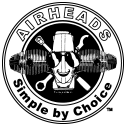[Solved] Clutch Squeal
Howdy folks! I am getting familiar with the new site here and hope this forum post works correctly. I have a well sorted 1976 R90/6 that is running like a dream after spending the last year working on it. Plenty of time at home this spring! Anyway I am lucky enough to have become friends with Matt Parkhouse and he has helped me go through the whole bike and really understand how it all functions so that I can maintain it myself. So far so good!
Now here's the issue I'm experiencing: We did a spline lube, cleaned and greased the clutch bits and pieces (including the throwout parts, etc.), replaced the clutch cable and put on a new clutch plate. It shifts and operates smoothly but at lower speeds when downshifting, there is a noticeable squeal or squelch when I slowly release the clutch lever after downshifting. This never happened before the clutch work and spline lube and the only time it happens is when I'm engine braking while slowing down to stop. If I'm cruising at speed and simply downshifting to go up a hill or to pass where the clutching, shifting, and throttle action are rapid and quick in succession, there's no issue or sound at all. I thought it might be the new clutch plate seating or something but this being my first airhead, I thought I would ask the community before I go and bug Matt about it. Again, it only happens while slowly letting out the clutch lever after downshifting while in motion so it has something to do with it reengaging. It doesn't happen while accelerating, shifting up, or moving from a stop in first gear, however. Also if I blip the throttle while downshifting, I don't hear the sound then either.
Thanks in advance for any advice here!
Posted by: @highcountryAgain, it only happens while slowly letting out the clutch lever after downshifting while in motion so it has something to do with it reengaging. It doesn't happen while accelerating, shifting up, or moving from a stop in first gear, however. Also if I blip the throttle while downshifting, I don't hear the sound then either.
And exactly why would you not 'blip the throttle' ??
Think about this. When you are accelerating and going "up" thought the gears, there is a drop in engine RPM with each shift. The mechanics of this action include closing the throttle while the clutch is disengaged so that the engine RPM drops to match the expected drop in RPM, which we've agreed will occur on an "up shift".
A "down shift" then, being the exact opposite movement, not only elicits the exact opposite mechanical response, but also requires the exact opposite operator movements. So if we shut off the throttle on "up shift", then we are also required to "blip the throttle" on "down shift".
But why ? The reason lies in the function of the clutch. The clutch is the connection point between the rear wheel (driven by road speed), and the engine. When the vehicle's driver fails to properly match the engine speed to the road speed the clutch takes up the slack. If there is a large mismatch, then the clutch will let the driver know by issuing a loud howl. You may have trouble envisioning this, but you have seen lots of videos of airplanes during landing. What happens to the clutch is exactly what happens when stationary airplane tires meet the moving runway... a loud Screech ! until the RPM mismatch is rectified.
So the only problem here may be simple operator error.
Hope this helps.
Owning an old Airhead is easy.
Keeping an old Airhead running great is the true test.
Thanks Richard! That makes sense and is the most logical explaination. It doesn't necessarily explain why this never happened before I serviced the clutch and lubed the splines. Perhaps that's because the old clutch plate was worn enough that it didn't have the same even surface area and contact? And just to be clear, the short squawk sound I'm hearing is not the tire like on an airplane. I'm still downshifting smoothly while feathering the clutch as I release the lever so the bike isn't jerking or bucking. As a younger guy just riding these great machines for the first time in the last year, I have a lot to learn still and rev matching on the downshift is something I'm still getting better at. My days as a kid cruising the mountain roads on old trail bikes and dirt bikes gave me some riding skills but there's not a lot that transfers to road riding and operating more highly engineered machinery like these classics. I'll work on my downshifting technique and see if I can't improve on the engine braking...someday if I find someone willing to help me add a second disk brake on the front wheel, perhaps I can just rely on the brakes. Brake pads are cheaper than engine and drivetrains right?
When you installed the clutch friction plate, you probably noticed some coil springs laying sideways that are built into the plate. Those are to cushion the engine speed vs. road speed difference. Jap dirt bikes typically use a large black rubber cushion that separates the rear sprocket from the rear wheel hub. No driver can always match the 2 speeds perfectly, and so all vehicles have 1 or more safety devices which absorb the excess shock. If this was not so, then you'd be replacing the rear wheel and tire on a frequent basis. The point is, there are many reasons the old clutch plate may have been silent while the new one is not.
The faster the road speed, the quicker the gear change. So whereas you might feather the clutch on take-off in 1st gear, the shift from 4th to 5th (50+ mph) should happen so fast that no (or very little) clutch is even required.
If the noises persist, you may need to check the condition of the main cush mechanism, which is built into the drive shaft and lubricated by splash from the drive shaft oil. It contains a large spring that can fail on GS models, but rarely has issues on road models.
Hope this helps.
Owning an old Airhead is easy.
Keeping an old Airhead running great is the true test.
Thanks Scott. I think that explains it and matches up to what Professor Parkhouse said to me when he noted there would be a period of time for the new plate to seat. Guess it will just take a little longer. Everything else is smooth and buttery.
Appreciate all the thoughts here from folks!
- 27 Forums
- 1,952 Topics
- 11.1 K Posts
- 4 Online
- 11.9 K Members




